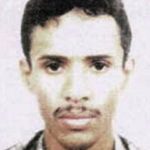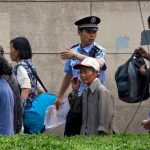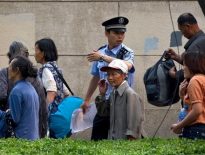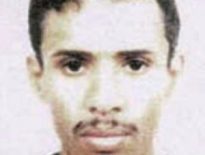DAMASCUS, Syria (AP) — Syrians cast ballots Monday in parliamentary elections billed by the regime as key to President Bashar Assad’s political reforms, but the opposition dismissed the vote as a sham meant to preserve his autocratic rule.
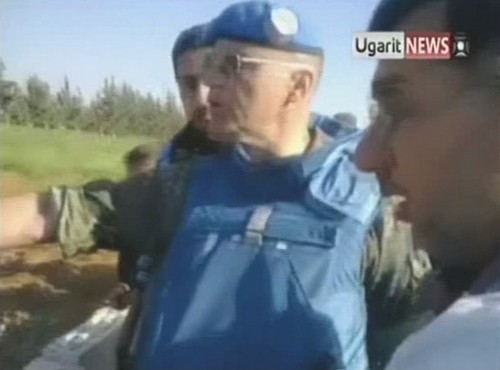
The voting for Syria’s 250 member parliament is unlikely to affect the course of Syria’s popular uprising, which began 13 months ago with anti-Assad protests. The regime has violently cracked down on dissent and many in the opposition have armed themselves, pushing the country toward civil war.
The U.N. says more than 9,000 people have been killed in Syria’s turmoil. Polls opened at 7 a.m. and Syrian state TV showed voters lining up and dropping white ballots in large, plastic boxes. Election officials say more than 7,000 candidates are competing seats in the legislature in a country of almost 15 million eligible voters out of a population of 24 million.
The elections are the first under a new constitution, adopted three months ago. The charter for the first time allows the formation of political parties to compete with Assad’s ruling Baath party and limits the president to two seven-year terms.
Assad has made a series of gestures toward reform to try to allay the crisis, but his opponents say his efforts are too little, too late. He set nationwide parliamentary elections for May 7. The vote was initially to take place in March but was postponed after a referendum in February on the country’s new constitution that allowed new political parties to run.
The parliament is not considered an influential body in Syria, where the real power is concentrated around Assad and a tight coterie of family and advisers. Experts say that despite the legal changes, Syria’s oppressive security services keep true regime opponents from participating in politics.
Some voters said they hoped the process would bring change. Damascus voter Hind Khalil, 23, said she’d vote for some independent candidates as well as members of the new parties. “They have fresh ideas that might bring in change,” she said. “I hope that they will work for the welfare of the country and for combatting corruption and bribery.”
The opposition has called the elections a farce and says it will accept nothing short of the fall of Assad’s regime. “The face of the regime will not change,” said activist Mousab Alhamadee, speaking on Skype from the central city of Hama. “The regime is like a very old woman, a woman in her 70s, trying to put on makeup.”
Alhamadee said streets were empty and shops were closed as residents observed a general strike to protest the elections. Activists reported strikes in towns and villages throughout Syria, and some hung posters of those killed during the uprising around their neighborhoods, saying their “martyrs” are the only suitable candidates.
It is unclear if voting will take place in all parts of the country, especially in areas heavily damaged by government shelling and clashes between government troops and rebels. The Syrian government portrays the uprising as a plot by terrorists with foreign backing to weaken the country. Some voters echoed that view.
“I have elected the newcomers because they have fresh ideas and are different from the old generation,” said Damascus voter Mohammed Hassan, 25. He said those boycotting the vote were “agents of the West.”
World powers remain divided on how to address Syria’s crisis, though all key players have endorsed a peace plan put forward by envoy Kofi Annan designed to lead to discussions on a political solution between the regime and the opposition.
But that plan has been troubled from the start. A truce that was to begin on April 12 has never really taken hold. About 40 U.N. observers are currently in Syria to monitor the truce. U.N. officials hope a wider deployment of up to 300 international truce monitors will gradually calm the situation.


